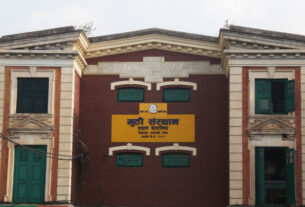Buying Apartments in Nepal: Pros and Cons
Nepal’s real estate market is growing rapidly, with apartments gaining popularity, especially in urban areas like Kathmandu, Pokhara, and Lalitpur. However, purchasing an apartment comes with its own set of advantages and disadvantages that buyers should carefully consider.
Pros of Buying Apartments in Nepal
- Convenience and Modern Amenities
- Apartments offer a range of amenities like 24/7 security, elevators, gyms, parking spaces, and backup power. This makes them an attractive option for those seeking a comfortable and convenient lifestyle.
- Maintenance of shared spaces, such as gardens and lobbies, is managed by the building management, reducing the homeowner’s burden.
- Location and Accessibility
- Apartments are typically located in prime areas close to schools, hospitals, shopping centers, and public transportation hubs, ensuring easy access to essential services.
- Cost Efficiency
- Compared to building a standalone house, apartments can often be more affordable. They eliminate the need for purchasing land separately and constructing a house, which involves higher costs and longer timelines.
- Security
- Apartment complexes generally have robust security measures, such as CCTV surveillance, gated entrances, and security personnel, offering peace of mind to residents.
- Community Living
- Apartment living fosters a sense of community, providing opportunities to socialize and network with neighbors.
Cons of Buying Apartments in Nepal
- Limited Ownership
- Buying an apartment means owning the interior unit, but not the land it is built on. This may limit potential appreciation in property value compared to owning land or standalone houses.
- Monthly Maintenance Costs
- Apartment owners must pay monthly maintenance fees, which may increase over time. These fees cover shared utilities and services but can become a financial burden for some.
- Resale Challenges
- Selling an apartment can be more challenging than selling a standalone property. Market demand for apartments may fluctuate, impacting resale value and liquidity.
- Space Constraints
- Apartments are typically smaller than independent houses, limiting customization and expansion options.
- Shared Living
- While community living can be a pro, it also means dealing with shared spaces, which may lead to conflicts over noise, cleanliness, and other issues.
- Uncertain Legal Framework
- Nepal’s apartment ownership laws are still developing. Buyers must conduct thorough due diligence to avoid disputes over ownership, taxes, or construction compliance.
Tips for Apartment Buyers in Nepal
- Research Developers: Check the reputation and reliability of the developer to ensure the project meets promised standards.
- Verify Legal Documents: Ensure the property has a clear title and all necessary approvals, including from local municipalities.
- Inspect the Property: Visit the site to evaluate construction quality and amenities before making a purchase.
- Assess the Location: Consider the neighborhood’s safety, accessibility, and infrastructure.
- Understand Costs: Apart from the purchase price, factor in taxes, registration fees, and maintenance charges.
Conclusion
Buying an apartment in Nepal can be a smart investment or a convenient living choice for those who value modern amenities and location advantages. However, it’s essential to weigh the pros and cons carefully and conduct due diligence to make an informed decision. Whether you’re a first-time buyer or looking for an investment property, understanding the market dynamics and legalities will help you navigate the process effectively.



